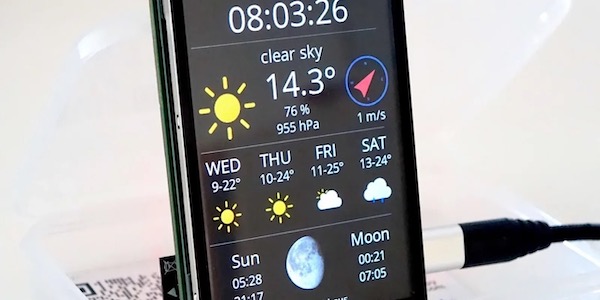The ESP8266 WiFi Electronics Starter Kit is the perfect way to get started with the Internet-of-Things (IoT) and is 100% compatible with the Arduino IDE. The comprehensive PDF-Manual guides you step-by-step through the setup of the development environment, driver installation and explains with exercises how to use the general purpose input/ output (GPIO) for reading and writing values. The kit contains:
- NodeMCU ESP8266 Development Module, 80/160MHz with 11 GPIO pins, 1 ADC (analog/digital) pins, integrated WiFi module, can also work as Access Point
- 0.96″ OLED display with 128×64 pixels. I2C communication over only 4 pins
- DHT11 temperatur and humidity sensor with 3 pins. The values can be drawn on the OLED display or sent to a cloud service like Thingspeak
- 40 female-female jumper cables to connect the components
- USB cable to program the the microcontroller
[add_to_cart id=”962″]
Content of the Guide:
- Introduction
- Required Hardware
- ESP8266 Module
- OLED Display
- Wires & Cables
- Tool Setup
- Download and Install the Serial Driver
- The Arduino IDE
- Install the ESP8266 tool chain
- Testing the Setup: WiFi Scanner
- Trouble Shooting
- Summary
- ESP8266 Programming Basics
- Preparation
- The Arduino Sketch
- Hello World: The serial console
- Input/Output: GPIO pins
- Interrupts
- Measuring analog signals
- WiFi
- HTTP
- The ESP8266 WeatherStation
- Installing the libraries
- Open the Weather Station Example
- Getting the Wunderground API Key
- Configuring the Weather Station
- Connecting the Hardware
- First Run
- Summary
- The WeatherStation Code Explained
- The JSON Streaming Parser
- Conclusion
- Collecting and Displaying Local Data
- The Climate Node Setup
- Thingspeak Setup
- Programming the Climate Node
- Displaying the data on the WeatherStation
- More Projects
- The ESP8266 PlaneSpotter
- The ESP8266 WorldClock
[add_to_cart id=”962″]


